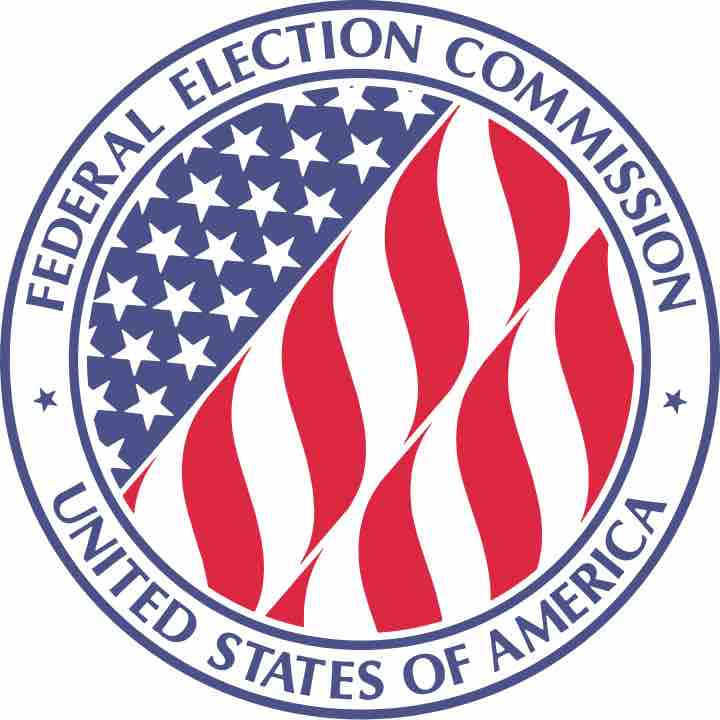Introduction
Campaign finance in the United States is the financing of electoral campaigns at the federal, state, and local levels. At the federal level, campaign finance law is enacted by Congress and enforced by the Federal Election Commission (FEC), an independent federal agency. Although most campaign spending is privately financed, public financing is available for qualifying candidates for President of the United States during both the primaries and the general election. Eligibility requirements must be fulfilled to qualify for a government subsidy, and those that do accept government funding are usually subject to spending limits.

Federal Elections Commission
Seal of the United States Federal Election Commission.
Races for non-federal offices are governed by state and local law. Over half the states allow some level of corporate and union contributions. Some states have limits on contributions from individuals that are lower than the national limits, while four states (Missouri, Oregon, Utah and Virginia) have no limits at all.
Campaign Finance Numbers
In 2008—the last presidential election year—candidates for office, political parties, and independent groups spent a total of $5.3 billion on federal elections. The amount spent on the presidential race alone was $2.4 billion, and over $1 billion of that was spent by the campaigns of the two major candidates: Barack Obama spent $730 million in his election campaign, and John McCain spent $333 million. In the 2010 midterm election cycle, candidates for office, political parties, and independent groups spent a total of $3.6 billion on federal elections. The average winner of a seat in the House of Representatives spent $1.4 million on his or her campaign. The average winner of a Senate seat spent $9.8 million.
Public financing of campaigns
At the federal level, public funding is limited to subsidies for presidential campaigns. This includes (1) a "matching" program for the first $250 of each individual contribution during the primary campaign, (2) financing the major parties' national nominating conventions, and (3) funding the major party nominees' general election campaigns.
To receive subsidies in the primary, candidates must qualify by privately raising $5000 each in at least 20 states. During the primaries, in exchange for agreeing to limit his or her spending according to a statutory formula, eligible candidates receive matching payments for the first $250 of each individual contribution (up to half of the spending limit). By refusing matching funds, candidates are free to spend as much money as they can raise privately.
From the inception of this program in 1976 through 1992, almost all candidates who could qualify accepted matching funds in the primary. In 1996 Republican Steve Forbes opted out of the program. In 2000, Forbes and George W. Bush opted out. In 2004 Bush and Democrats John Kerry and Howard Dean chose not to take matching funds in the primary. In 2008, Democrats Hillary Clinton and Barack Obama, and Republicans John McCain, Rudy Giuliani, Mitt Romney and Ron Paul decided not to take primary matching funds. Republican Tom Tancredo and Democrats Chris Dodd, Joe Biden and John Edwards elected to take public financing.
In addition to primary matching funds, the public funding program also assists with financing the major parties' (and eligible minor parties') presidential nominating conventions and funding the major party (and eligible minor party) nominees' general election campaigns. The grants for the major parties' conventions and general election nominees are adjusted each Presidential election year to account for increases in the cost of living. In 2012, each major party is entitled to $18.2 million in public funds for their conventions, and the parties' general election nominees are eligible to receive $91.2 million in public funds. If candidates accept public funds, they agree not to raise or spend private funds or to spend more than $50,000 of their personal resources.